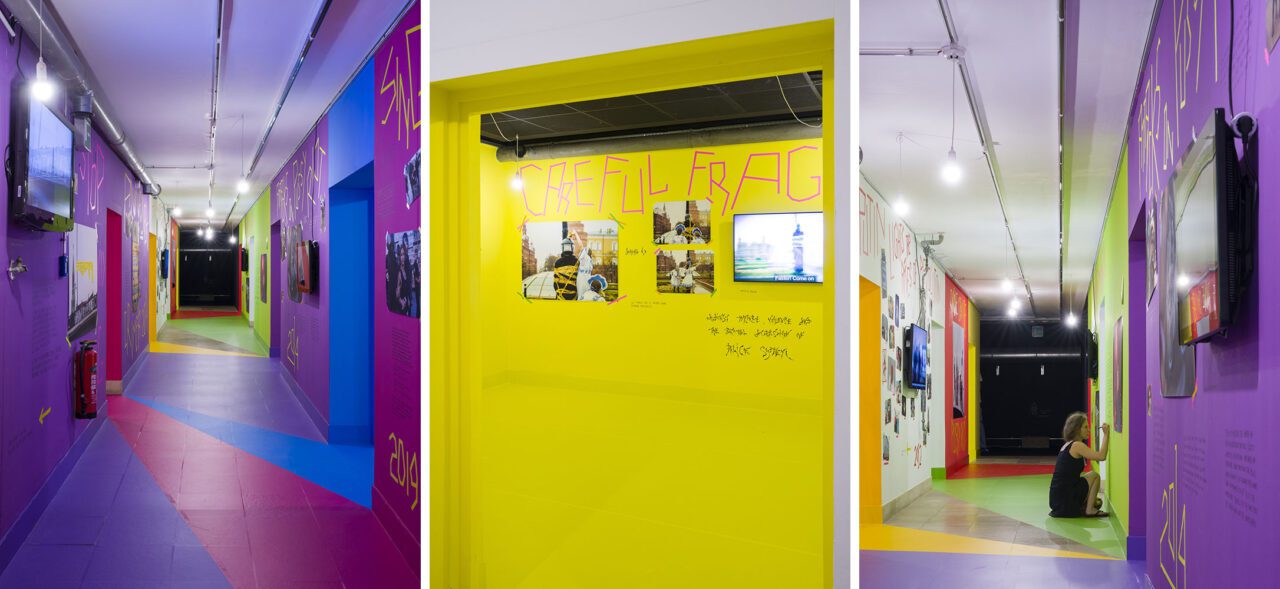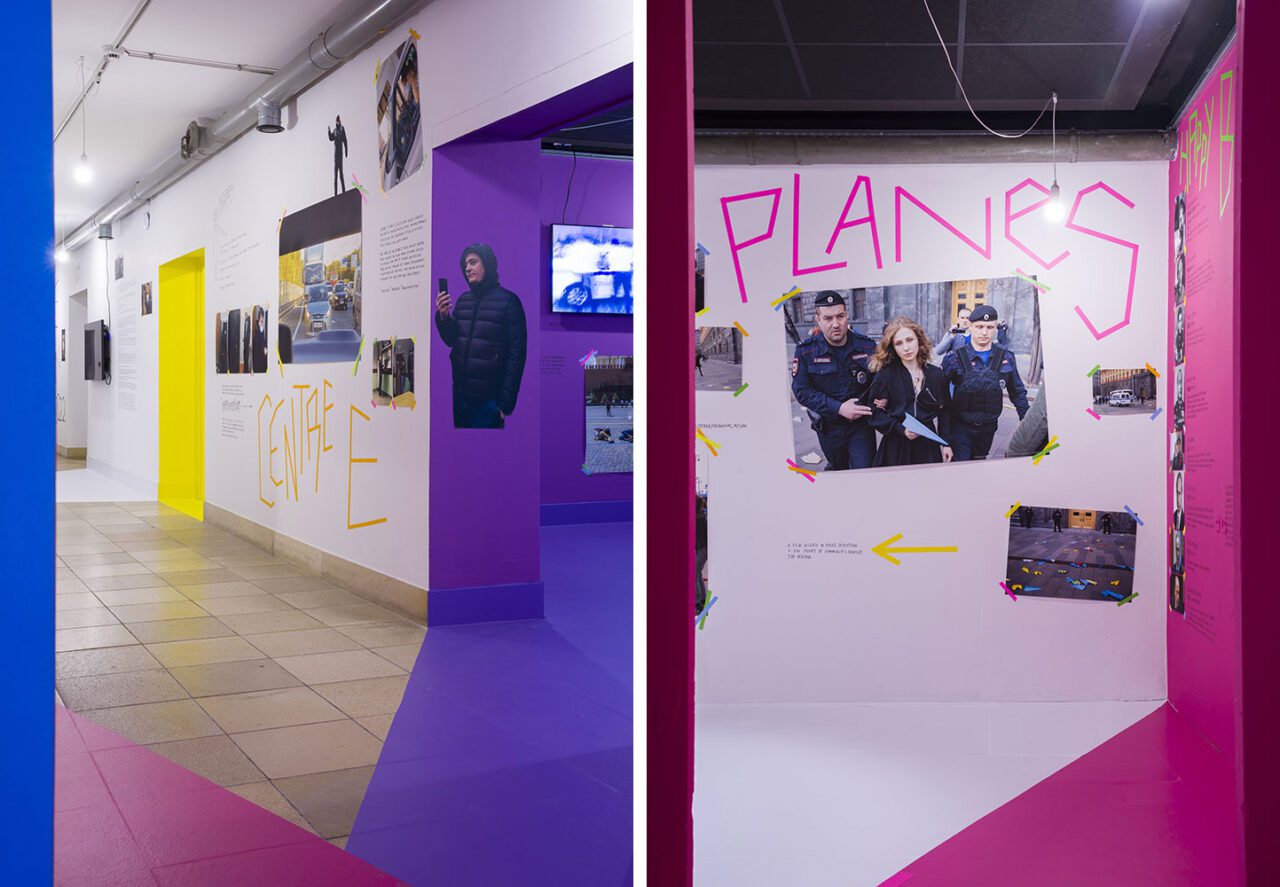PRESENTATION: Velvet Terrorism-Pussy Riot’s Russia
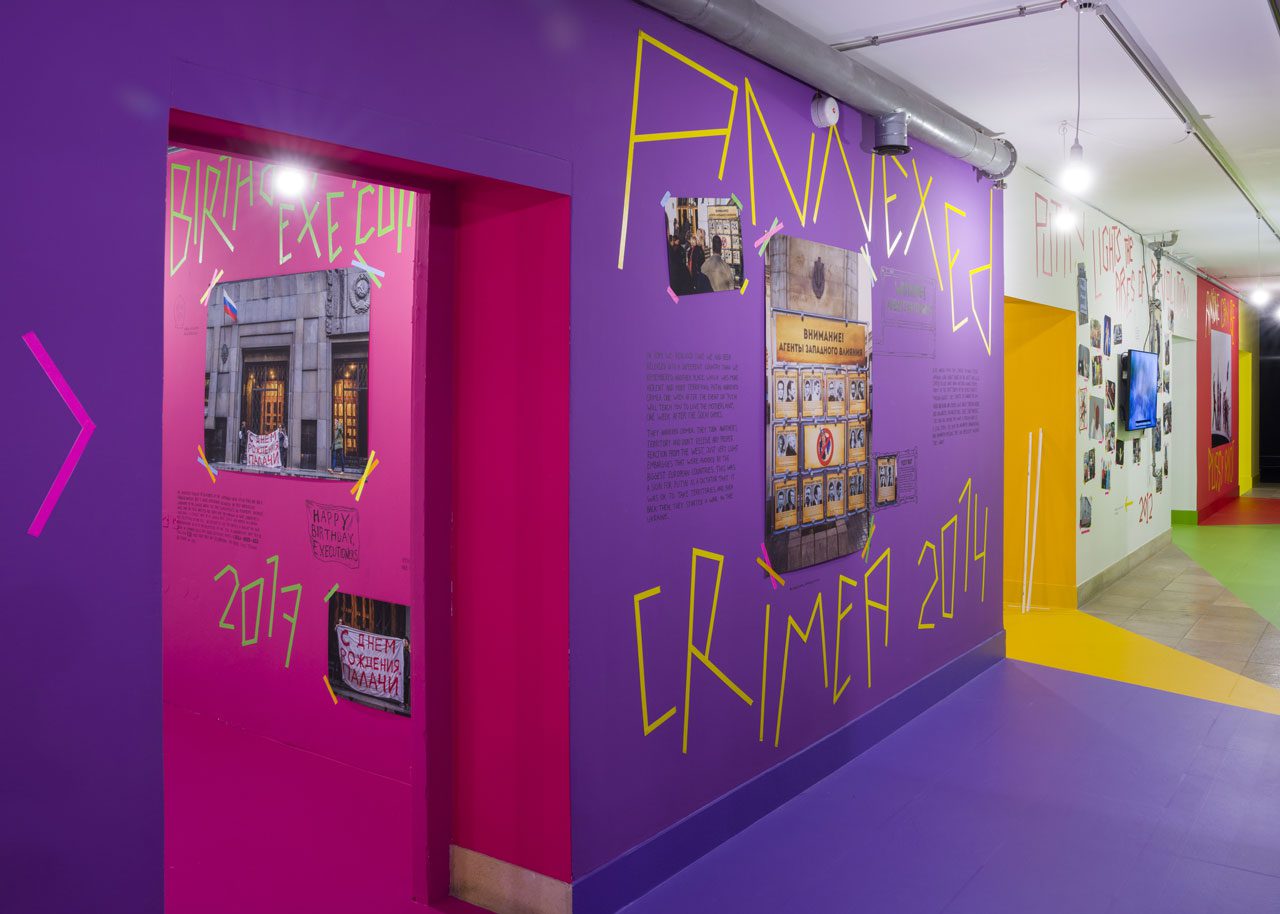 Pussy Riot’s performances, music, and videos are characterized by playfully provocative and politically charged lyrics and actions. For over a decade, the group, formed in Moscow in 2011, has courageously, and with a wry smile, shone a light on the political repression and brutal injustices that the Russian regime inflicts on its critics through imprisonments, arbitrary arrests, extrajudicial executions, mysterious poisonings, and other means of suppressing dissent.
Pussy Riot’s performances, music, and videos are characterized by playfully provocative and politically charged lyrics and actions. For over a decade, the group, formed in Moscow in 2011, has courageously, and with a wry smile, shone a light on the political repression and brutal injustices that the Russian regime inflicts on its critics through imprisonments, arbitrary arrests, extrajudicial executions, mysterious poisonings, and other means of suppressing dissent.
By Efi Michalarou
Photo: Haus der Kunst Archive
Pussy Riot gained massive international attention in 2012, when three of its members (Maria “Masha” Alyokhina, Nadezhda “Nadya” Tolokonnikova, and Yekaterina “Kat” Samutsevich) were arrested and sent to remote prison colonies for “hooliganism motivated by religious hatred” after what amounted to an updated version of a Stalinist show trial with only a thin veneer of legality. More recently, the well-known Russian opposition leaders Alexei Navalny and Vladimir Kara-Murza have also been the victims of the Kremlin’s similarly stage-managed verdicts. Pussy Riot’s “crime” was a performance of “Punk Prayer” (2012), a song protesting against Vladimir Putin and the collusion of church and state, in Moscow’s Cathedral of Christ the Saviour. Putin was about to be re-elected for a third term as president, following parliamentary elections viewed by many as fraudulent. The hastily edited video of the performance went viral and, compounded by the erudition and eloquence of Pussy Riot’s state-ments during the trial, the court case sparked a global outcry, instantly becoming a symbol of the struggle for free expression and political protest in Russia. Since then, Pussy Riot has continued to use its platform to speak out on issues related to feminism, LGBTQ+ rights, political corruption, the war in Ukraine, and authoritarianism both at home and around the world. “Velvet Terrorism: Pussy Riot’s Russia” is Pussy Riot’s first survey exhibition and was initially staged at Reykjavik’s Kling & Bang art space. An encoun-ter in Moscow between Pussy Riot member Alyokhina and Icelandic artist Ragnar Kjartansson is at the origin of this project. He has described the feminist art collective’s work as having a “non-con-sensual relationship with the state.” Indeed, Pussy Riot has used the police state’s apparatus of repression and authoritarianism as a creative part-ner, engaging in an uneasy “dance with the devil.” The exhibition amply documents both the variety of Pussy Riot’s actions and the reactions and punishments meted out by the authorities. Although this is a documentary exhibition featuring hundreds of photographs and dozens of videos, it begins with pure fantasy – a collaboration with Kjartansson, in fact – full of feminist punk contempt: a floor-to-ceiling video projection shows member Taso Pletner (who joined Pussy Riot in 2022, after the war started), filmed in Ragnar’s studio, urinating on a portrait of Vladimir Putin. The boisterous exhibition, consisting of too many cheekily courageous actions, cruel punish-ments, and moving accounts to fully summarize here, proceeds chronologically: calls for revolution and guerrilla concerts in luxury boutiques and bars where “Putinists” congregate in “Fuck You, Fucking Sexists and Fucking Putinists”” (2011); demands for the release of all political prisoners on the roof of Moscow Detention Centre No. 1, Death to Prison, Freedom to Protest” (2011), to the applause of hun”dreds of the detainees inside, many of them activ-ists protesting the rigged state Duma elections of 2011; seizing a historic stone platform in front of the stunning iconic onion domes of St Basil’s Cathedral in Red Square, where tsarist decrees and sentences were read, and performing with limitless rage Putin Peed His Pants” (2012) in acid-hued costumes and balaclavas, while coloured smoke billows from flares. All this and more pre-ceded Punk Prayer. Not long after serving their two-year prison sentence for “Punk Prayer,” Alyokhina and Tolokonnikova, with other members of Pussy Riot, travelled to Sochi to perform their new song “Putin Will Teach You to Love the Motherland” (2014). The video documents Pussy Riot’s attempt to film a new music video in Sochi during the Winter Olympic Games and documents a brutal assault at the hands of Cossack militiamen as the police stand by and do absolutely nothing. Following the annexation of Crimea and war in eastern Ukraine, “Free Sentsov” (2017) consists of three Pussy Riot actions in support of Oleg Sentsov, the acclaimed Ukrainian film director and outspoken critic of the invasion who was impris-oned in Russia under false terrorism charges: in Siberia, a banner unfurled on a bridge near the remote penal colony where he staged a 144-day hunger strike, then an action in New York with the help of PEN America, and finally an attempt at an action near the Lenin statue in Simferopol, Crimea, which he was accused of plotting to bomb. Sentsov was recently released in a prisoner exchange with Ukraine and is fighting with the Ukrainian army.
In April of 2018, Russian authorities started blocking the Telegram messaging app. A protest was organized to demand the constitutional right to private correspondence at the headquarters of the FSB (Federal Security Service of the Russian Federation), where coloured paper airplanes were launched in the direction of the entrance. The Telegram logo is a paper plane. In 1991, the Russian art group E.T.I. (abbrevi-ation for Expropriation of the territory of art in English) staged an action, Text on Red Square, protesting the enforcement of a ban on swearing in public places by spelling out, with their bodies lying down in the square, the most widely used three-letter expletive in Russia. In an homage to E.T.I., Pussy Riot protested Putin passing a law that allows him to run twice more for the presidency, potentially keeping him in office until 2036, by spelling out the numbers with their bodies on the same paving stones in “2036” (2020). The somewhat playfully titled “”Arrest Carousel” (2021) belies what must have been the dread and panic of being detained for weeks at a time and released only to be immediately detained again for two more weeks. Emulating how Russian police can suddenly intrude uninvited into citizens’ lives, four Pussy Riot members disguised as policewomen and policemen burst onto the pitch at Moscow’s Luzhniki stadium, interrupting the World Cup Final 2018 match between France and Croatia, which was being watched by over a billion TV viewers around the world. Just before being dragged off by security, one of the invaders managed a delightful high-five with French superstar Kylian Mbappé. Trolling Putin is a serious business. For his sixty-eighth birthday in 2020, Pussy Riot impersonated municipal employees and installed rainbow flags on five of the most heavily guarded buildings in Moscow, including the Russian Supreme Court. “Rainbow Diversion” (2020) called out Putin’s, and the state’s, endless demonization of homosexuality. The exhibition includes documentation of Alyokhina’s notorious escape from Moscow in a food-delivery uniform made with her partner Lucy Shtein, after they both spent a year and a half under house arrest and in different Moscow police stations and jails. Leaving her phone behind as a decoy, she first crossed into Belarus, where, with a friend’s help, she secured a travel document to enter Europe. Against the tragic backdrop of seemingly endless Russian aggression in Ukraine, there is added urgency and poignancy to Pussy Riot’s sustained fight for human rights, political reform, and anti-war activism. In addition to enabling visitors to view for the first time the group’s inspiring, mostly little-known performances, the exhibition encourages a deeper investigation into Soviet history and contemporary Russian politics and protest culture, as well as the group’s aesthetic links to Fluxus and a wide range of other figures and movements, such as painter Kazimir Malevich’s cos-tumes, Bikini Kill’s music, Vienna Actionism, Moscow Romantic Conceptualists, Oleg Kulik, Alexander Brener, the Collective Actions Group, and Sasha Baron Cohen – for humour. For over a decade Pussy Riot has been fighting against oppression and tyranny in Russia – specifically against Vladimir Putin’s authoritarianism, corruption, and political repression. Putin’s recent failed attempt to kill, by poisoning, his nemesis Alexei Navalny – whose name he makes a point of never speaking – is a shameless encapsulation of this. (The Kremlin denies all involvement.) Although Navalny is not a saint, his self-sacrifice is astonishing, as he is now languishing in a Russian penal colony under bogus charges with a shockingly long sentence, after voluntarily returning home following medical treatment in Germany. Alyokhina protested the imprisonment of all political prisoners, including Navalny (and was sentenced to house arrest, with an electronic ankle bracelet, for an Instagram post), and Pussy Riot previously pro-tested the imprisonment of Navalny’s brother Oleg (The Ball, 2014), taken hostage by Putin to silence his brother. This period also saw Russia’s annexation of Crimea and the Donbas region in 2014, culminating in Putin’s brazen declaration, in February 2022, of a “special military operation” in Ukraine, a country he insists is an integral part of Russia. In reality, it is an outrageous all-out war and unconscionable aggression against an independent neighbouring state, causing untold death and destruction and the forced flight of millions of civilians. Propaganda warfare also rages, as press freedom is curtailed and false narratives abound, and for the first time in decades the spectre of nuclear conflict makes an ominous return. As incredulity, indignation, and disgust mount around the world, Pussy Riot’s actions courageously confront this fascism and, through their open defiance of injustice, inspire us all.
Photo: Pussy Riot, Velvet Terrorism – Pussy Riot’s Russia, Exhibition view, Haus der Kunst München, 2024, Photo: Maximilian Geuter, Courtesy the artists and Haus der Kunst
Info: Curators: Ragnar Kjartansson, Ingibjörg Sigurjónsdóttir, and Dorothee Maria Kirch (Kling&Bang, Reykjavik); Lydia Antoniou, Andrea Lissoni, Margarita (Haus der Kunst München), Haus der Kunst, Prinzregentenstraße 1, Munich, Germany, Duration: 6/9/2024-2/2/2025, Days & Hours: Mon, Wed & Fri-Sun 10:00-20:00, Thu 10:00-22:00, www.hausderkunst.de/
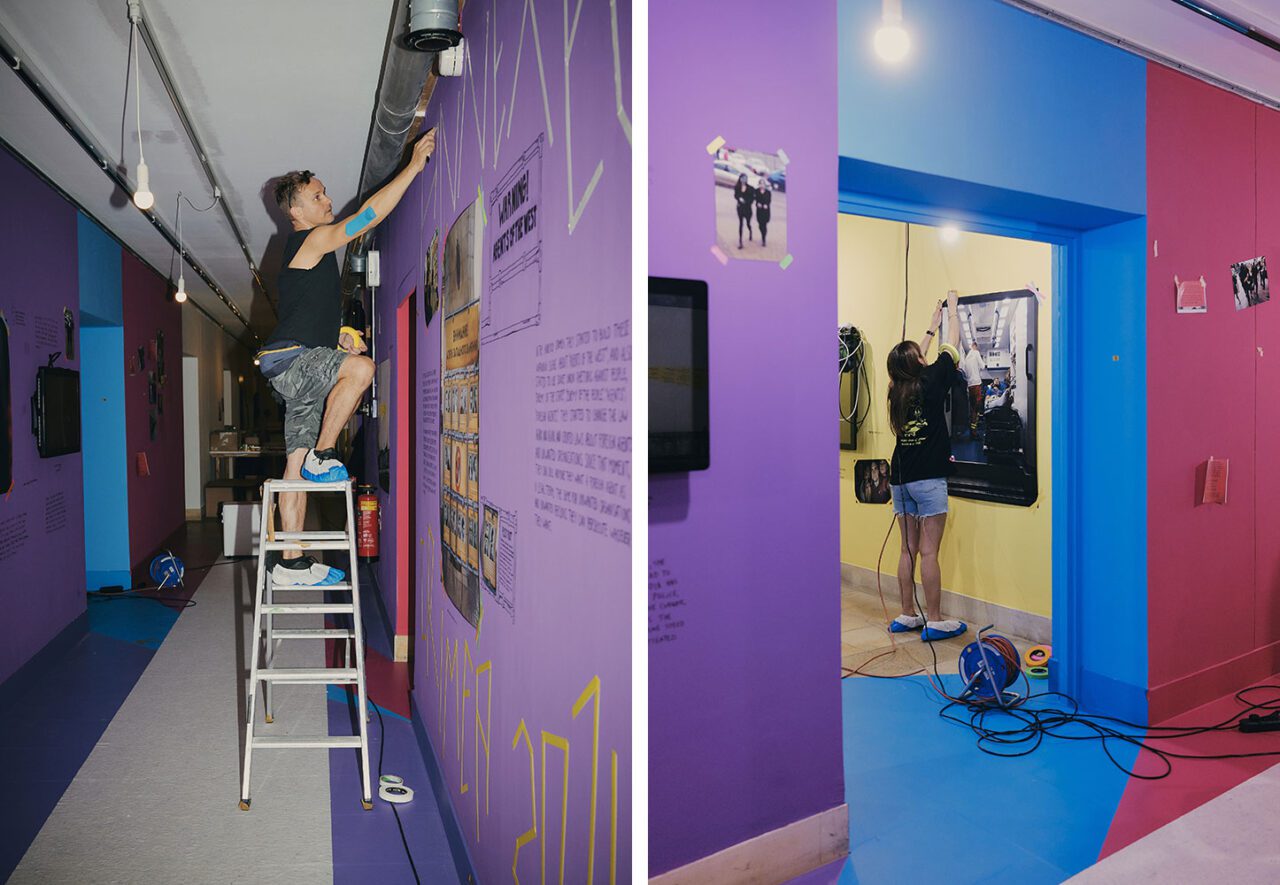

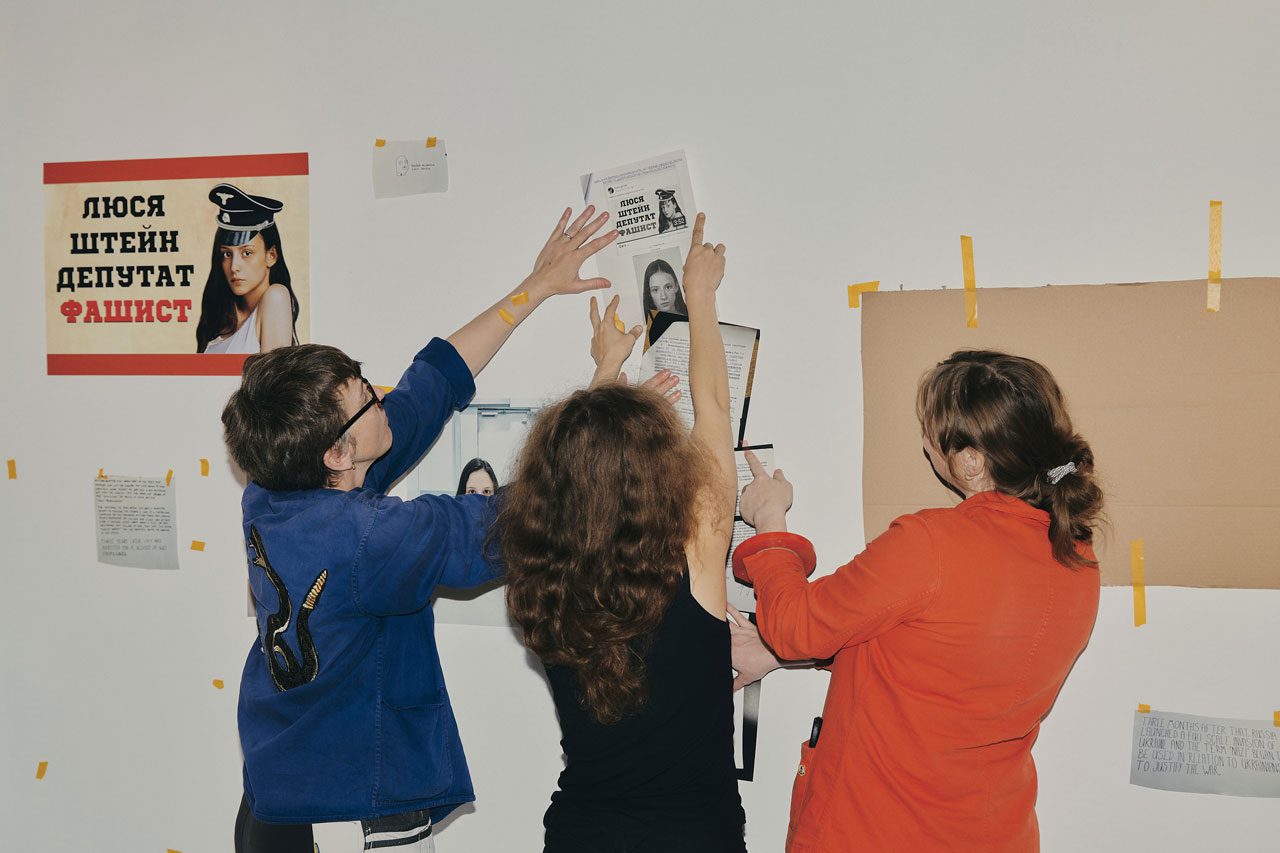

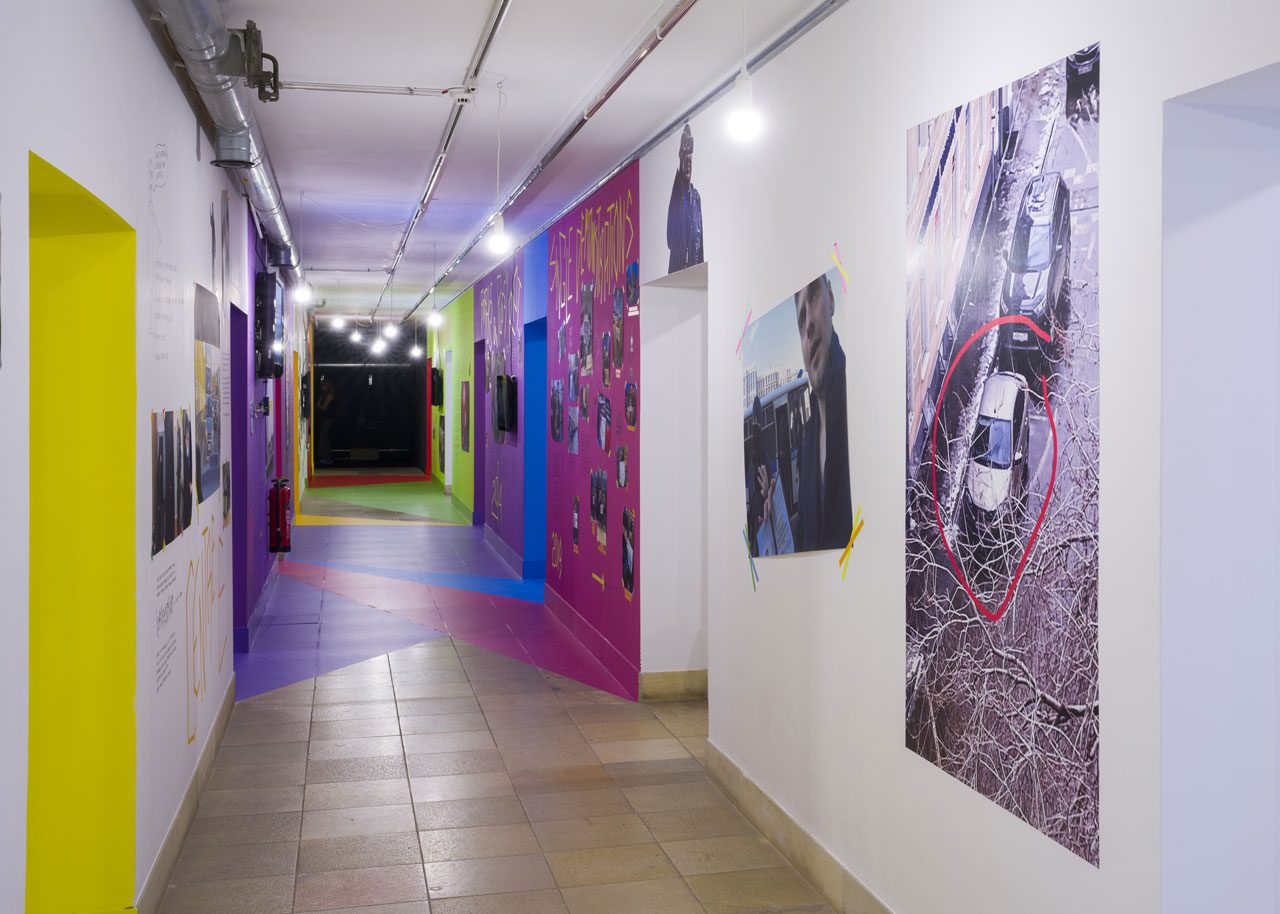


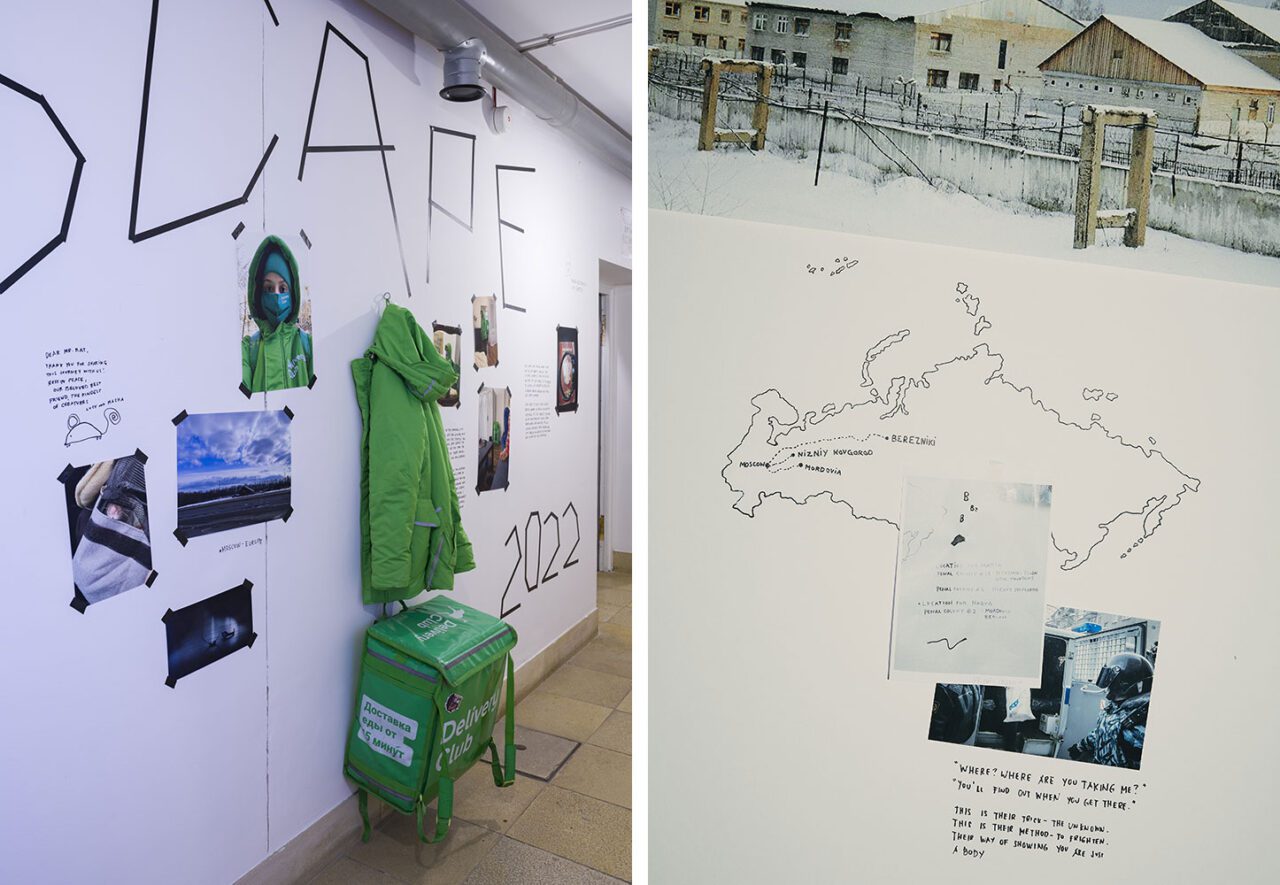
Right: Pussy Riot, Velvet Terrorism – Pussy Riot’s Russia, Exhibition view, Haus der Kunst München, 2024, Photo: Constantin Mirbach, Courtesy the artists and Haus der Kunst
